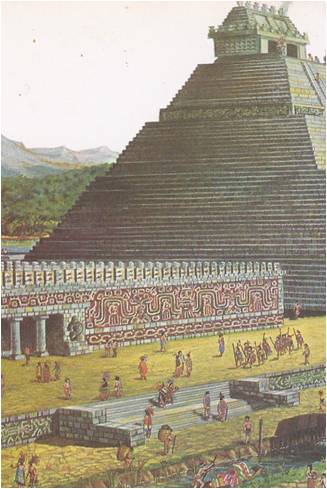As Roosevelt’s first term in office neared its end, many people in the United States — and in other countries — wondered if the New Deal could really solve America’s problems. More than that, they wondered if Americans would continue to follow the path of democracy. A wave of totalitarianism was sweeping the world; would it reach as far as America? There was no doubt that there were some Americans who supported Hitler and the Nazis. Members of the German-American Bund paraded in brown shirts and held a mass meeting in New York’s Madison Square Garden, but there were comparatively …
Read More »A Changing Nation 1934 – 1936
IN THE spring of 1933, as the New Deal roared into action, business began to get better, but it dropped again and as 1933 ended and a new year began, even the most optimistic New Dealer had to admit that the depression was still on. During 1934, the government took further steps to regulate banking and finance‚ but some Americans were dissatisfied. Businessman complained that the government was making it harder to do business. In spite of all the excitement, the NRA was not working out well. The farmers were complaining that prices of farm products were still too low. …
Read More »The United States and Destiny 1848-1914
THE UNITED STATES entered the race for colonies last of all the powers, at the end of the nineteenth century. Long before then, however, Americans were accustomed to taking over territory; they had, in fact, built their country westward from the Atlantic by settling lands they had bought or seized. In the Mexican War of 1845-48 they had taken a huge tract of land from Mexico by force. Many Americans, including Abraham Lincoln believed that the Mexican War was simply an invasion of a weak country by its powerful, land hungry neighbour. Others maintained that the move was justified by …
Read More »Industry Transforms America 1865-1914
VETERANS or the Union Army, returning to their home towns in New England or the Middle Atlantic states after the war were surprised at what they saw. They had grown up in towns where most of the people lived by farming, while the rest sold things to farmers or worked in local workshops. Perhaps a mill and a factory had stood on the bank of the town’s river. The farms, stores and workshops remained, but now there were many new brick buildings used for factories, mills and warehouses. American industry, concentrated in the river valleys and ocean ports of the …
Read More »The Civil War 1860-1865
AS THE Presidential elections of 1860 drew near, the Democratic party was as hopelessly divided as the nation. The Southern Democrats broke away from the party and nominated John C. Brekinridge of Kentucky as their candidate. He demanded that Congress pass laws protecting slavery in all the American territories, whether the people of the territories wanted slavery or not. Democrats from the northern and border states nominated Stephen A. Douglas, who promised to allow each new state in the West to decide the slavery question tor itself by popular vote. With the Democrats divided, the Republicans were almost certain to …
Read More »A House Divided 1833 – 1859
BEFORE ELI Whitney invented the cotton gin, Southern plantation owners were beginning to wonder if they should not give up their slaves. There was a good market for cotton; the English were buying all the cotton they could get to make into cloth in their new factories. It took too long to separate raw cotton from the seed and raising cotton simply did not pay. If the plantation owners stopped raising cotton, they would really have no need for slaves. Then after the invention of the cotton gin, raising cotton began to pay — and pay well! Cotton became the …
Read More »Adventures in the New World 1519 – 1620
“I DID NOT come to till the soil like a peasant,” said Hernando Cortez. “I came to find gold.” His words echoed the thoughts of almost every Spaniard in the New World. The discovery of the sea route to the West had set off a great treasure hunt. Colonizing and slaughtering, building and plundering, the gold-hungry Spaniards won a Spanish Empire of the West. Conquistadores‚ they were called — the conquerors. None of the treasure-hunters was more cunning or ambitious than Hernando Cortez‚ who came to the island of Hispaniola in 1504. It was not until 1519 that the governor …
Read More »





